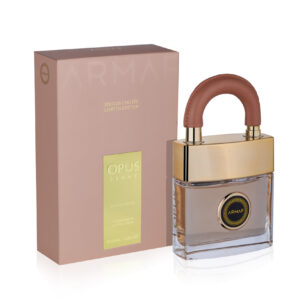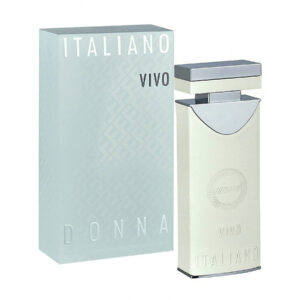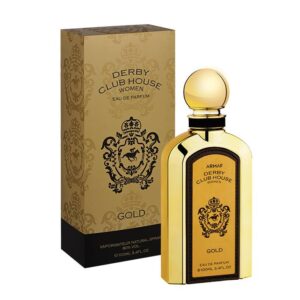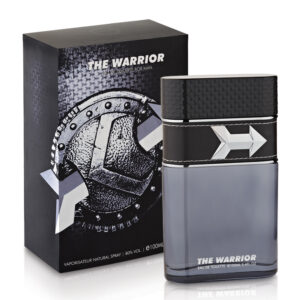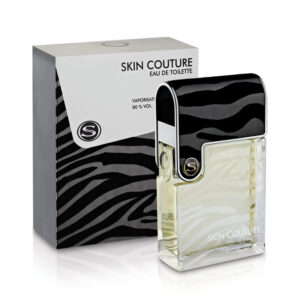
First Name in Perfumes: Exploring the Origins, Icons, and Naming Secrets Behind Your Favorite Scents
Estimated reading time: 9 minutes
Key Takeaways
- The phrase “first name in perfumes” embodies rich layers — from creators’ identities to historic pioneers and celebrity branding.
- Legendary figures like Gabrielle “Coco” Chanel transformed perfume naming by anchoring scents with their own first names.
- Historic perfumes such as Chanel No. 5 and Guerlain laid the foundations of modern fragrance culture.
- Fragrance naming strategies involve highlighting ingredients, evoking emotions, or storytelling to connect with consumers.
- Celebrity perfumes use first names to create a personal connection and boost brand identity.
Table of contents
- What Does “First Name in Perfumes” Mean?
- Eponymous Names: When Creators Become the Brand
- Historic Perfumes: The First Ever and Their Impact
- The Art of Fragrance Naming: More Than Just a Name
- Celebrity Names: First Names That Sell
- “First Name in Perfume” in Crosswords and Popular Culture
- The Big Picture: Iconic Brands and Their Names
- What’s in a Name? The Marketing Strategy Behind Perfume Naming
- Final Thoughts: The “First Name” That Changed Perfume Forever
- Frequently Asked Questions
When you think about perfumes, what comes to mind first? Is it the enchanting scent itself, the elegant bottle, or perhaps the famous name attached to it? The phrase “first name in perfumes” carries a rich history and multiple meanings that perfume lovers, collectors, and curious minds alike will find fascinating. From the legendary scents named after their creators to how modern brands and celebrities craft their perfume identities, this blog post takes you on a thrilling journey into the world behind those iconic fragrance names.
Let’s dive deep and unravel what “first name in perfumes” really means, why it matters, and how fragrance naming strategies have shaped the perfume industry and your shopping experience.
What Does “First Name in Perfumes” Mean?
The phrase “first name in perfumes” might sound simple, but it opens the door to several interesting interpretations. Depending on context, it could mean:
- The actual first name used in a perfume’s branding, e.g., a celebrity’s first name.
- The pioneering perfumes that set the stage for modern fragrance culture.
- The first names of designers and brand creators who lend their identity to their perfumes.
- Naming conventions reflecting ingredients, emotions, and storytelling in perfume marketing.
- Even crossword puzzle clues hinting at specific perfume-related names.
Let’s break down these layers one by one.
1. Eponymous Names: When Creators Become the Brand
One straightforward interpretation of “first name in perfumes” is the use of the creator’s or designer’s name as the perfume’s identity. This practice has deep roots in the fashion and fragrance industries, where the designer’s reputation is a key selling point.
Legendary Examples: Chanel and Dior
Take Chanel No. 5, for instance. This timeless classic traces back to Gabrielle “Coco” Chanel, who revolutionized women’s fashion and fragrance in the early 20th century. Launched in 1921, Chanel No. 5 was the first perfume to bear a designer’s signature and remains one of the most famous perfumes in history.
For those interested in finding their signature scent, explore our guide on choosing the right perfume.
Similarly, Dior, Narciso Rodriguez, and Tom Ford have all embraced this trend, using their own names to create a personal, luxurious connection with customers. This association signals not only quality but also a sense of authenticity and artistry behind each scent.
Lesser-Known Yet Iconic Names
Beyond the household giants, many smaller brands bear the first names of their founders or personas. Examples include Prince Matchabelli, an early 20th-century perfumer whose name became an emblem of refined luxury; Michael Kors, known for classic American style; and Paloma Picasso, who carried her illustrious family name into an artful perfume line.
Source: Perfume Brands — PerfumeBox
Source: Fragrancex Brand List
2. Historic Perfumes: The First Ever and Their Impact
Another lens through which to view “first name in perfumes” is in the context of history — the first-ever perfumes that shaped the modern industry.
Chanel No. 5: An Unsurpassed Pioneer
We can’t emphasize enough how Chanel No. 5 stands as a hallmark in perfumery. As one of the earliest designer perfumes, it broke the mold of simple, single-note scents and introduced complex compositions that embodied femininity and modernity. Its impact is so profound that it often remains the first name anyone mentions when discussing legendary perfumes.
The Guerlain Legacy
Going even further back, the historic French perfume house Guerlain, founded in 1828, is known for crafting some of the earliest iconic fragrances that laid down the foundation of modern perfumery. Their creations are steeped in tradition, and many bear the family name, becoming synonymous with timeless elegance.
For additional insights on selecting classic fragrances for any occasion, see our expert recommendations: best perfumes for occasions.
Source: List of Perfumes — Wikipedia
3. The Art of Fragrance Naming: More Than Just a Name
Perfume names are not chosen at random. Behind every scent lies thoughtful naming strategies designed to evoke emotions, imagery, and sometimes, the very essence of the perfume’s ingredients.
Ingredient-Based Names
Some perfumes proudly display the core notes behind their scent. For example, Vetiver by Creed and Oud Mirage (name inspired by oud, a resinous wood used widely in Middle Eastern perfumery) highlight the central ingredient right in their names, tempting those who are familiar with these luxurious components.
Discover more about the science behind scent selection in our article on sniff perfumes.
Emotional and Evocative Names
Other perfumes aim to tug at your heartstrings or inspire an experience with names like Euphoria or Obsession by Calvin Klein. These names don’t describe the scent itself but instead evoke a feeling or mood, making the perfume more than just a fragrance — it becomes an emotional accessory.
Food, Drink, and Nature
Some perfumes take inspiration from the natural world or even culinary delights. For instance, Brown Sugar by Fresh or Gin by Commodity show how a name can instantly create a playful and intimate connection to familiar scents or tastes.
4. Celebrity Names: First Names That Sell
The concept of “first name in perfumes” also shines brightly in the realm of celebrity fragrances, where the star’s recognizable name becomes a powerful marketing tool.
Why First Names?
Celebrities often use their first names as perfume brands to emphasize a personal connection and approachable image. You’ve likely seen perfumes from stars like:
- Britney Spears with perfumes named Curious and Fantasy.
- Rihanna, whose name alone brings huge brand recognition.
- Shakira and Pitbull, who similarly use their first names to build fragrance lines.
The use of first names makes the perfumes feel like a personal invitation from the celebrity to their fans.
Explore a variety of original fragrance samples and experiences here: original fragrance samples.
Source: Perfume Brands — PerfumeBox
Source: List of Perfumes — Wikipedia
5. “First Name in Perfume” in Crosswords and Popular Culture
Even outside the perfume counter, the phrase “first name in perfume” can pop up as a crossword puzzle clue or a cultural reference. Often, the answer to such clues is “Coco”, directly pointing to Coco Chanel, a name so iconic it permeates popular culture as the quintessential “first name” linked to perfume.
Source: CrosswordSolver
6. The Big Picture: Iconic Brands and Their Names
The perfume world is peppered with eponymous brands where the founder’s first name is the brand itself:
- Narciso Rodriguez: His minimalist design extends to his perfume lines.
- Tom Ford: Known for bold scents like Tobacco Vanille.
- Prince Matchabelli: A historic perfume house with a princely touch.
- Michael Kors and Paloma Picasso follow the same tradition.
Brands leverage the prestige of their names to create immediate recognition and loyalty among consumers.
Source: Perfume Brands — PerfumeBox
Source: Fragrancex Brand List
What’s in a Name? The Marketing Strategy Behind Perfume Naming
Choosing the perfect perfume name is like crafting a mini-story or a promise to the customer. It involves:
- Highlighting key ingredients: Like Vetiver, Tobacco, or Oud.
- Evoking emotions: Names like “Flowerbomb” or “Fucking Fabulous” by Tom Ford stimulate curiosity and engagement.
- Telling a story or conjuring imagery: “Gypsy Water” by Byredo transports the wearer to distant, mystical places.
This strategic naming not only helps perfumes stand out in a crowded market but also builds a sensory and emotional relationship with the wearer, long before the bottle is opened.
Final Thoughts: The “First Name” That Changed Perfume Forever
When someone mentions the “first name in perfumes”, there’s a good chance they mean Coco Chanel, the pioneer whose vision birthed one of the world’s most enduring scents — Chanel No. 5. Yet, the phrase also opens up an exciting array of stories: from historic perfume houses and legendary creators to the marketing genius behind evocative fragrance names and celebrity endorsements.
If you’re intrigued by how names influence your perfume choices, check out our guide on how to choose the right perfume.
Whether it’s the signature of a designer, the hint of an ingredient, or the emotional pull of a name, perfume naming is a fascinating blend of art, history, and business. Next time you pick up a bottle, consider the story behind its “first name” — it might just deepen your appreciation for the scent.
Frequently Asked Questions
- What is the meaning of “first name in perfumes”?
- Why are celebrity first names used for perfumes?
- How do perfume names affect buying decisions?
- Which historic perfume is considered the first iconic scent?
What is the meaning of “first name in perfumes”?
The phrase can refer to the actual first name used in branding, pioneering perfumes that set the industry standards, or the first names of designers tied to the perfume. It often highlights the personal or historic significance behind fragrance naming.
Why are celebrity first names used for perfumes?
Celebrities use their first names to create an approachable and personal brand image, making the perfume feel like a direct invitation to fans. This strategy improves recognition and emotional connection with potential buyers.
How do perfume names affect buying decisions?
Names can evoke emotions, imagery, or highlight key ingredients. A well-chosen perfume name helps consumers identify with the fragrance, often influencing their purchasing choices by telling a mini story or creating curiosity.
Which historic perfume is considered the first iconic scent?
Chanel No. 5 is widely recognized as one of the first iconic perfumes that revolutionized the industry, introducing a complex, modern scent that remains legendary to this day.

